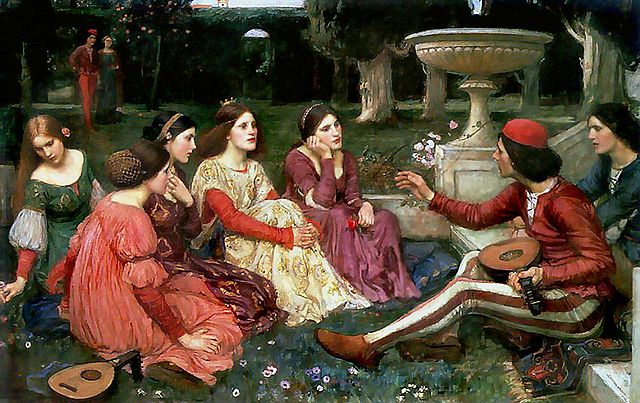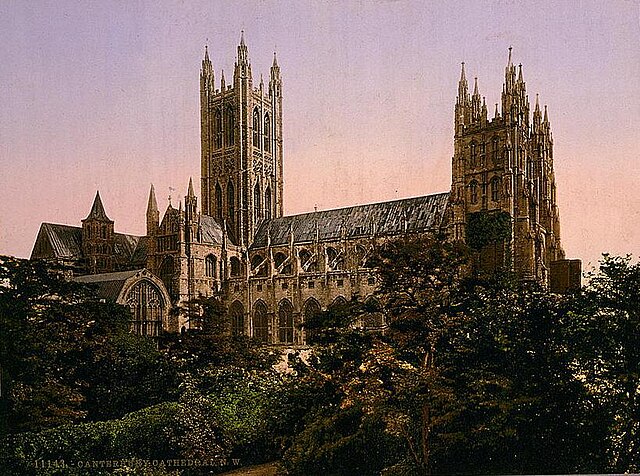The Ancestor's Tale: A Pilgrimage to the Dawn of Life is a science book by Richard Dawkins and Yan Wong that delves into the topic of evolution. The book adopts a unique approach, retracing the path of humans in reverse chronological order through evolutionary history. Along the way, it introduces readers to various species, referred to as humanity's cousins, as they converge on shared common ancestors. Drawing on scientific principles and research, "The Ancestor's Tale" offers an accessible and thought-provoking exploration of life's origins and the intricate relationships that connect all living beings.
First edition (UK)
An artist's reconstruction of Archicebus achilles.
The Cretaceous–Paleogene extinction event occurred 65 million years ago, due to an asteroid impact event which created the Chicxulub Crater, possibly aided by large scale volcanic activities in the Deccan traps.
The Canterbury Tales is a collection of twenty-four stories that runs to over 17,000 lines written in Middle English by Geoffrey Chaucer between 1387 and 1400. It is widely regarded as Chaucer's magnum opus. The tales are presented as part of a story-telling contest by a group of pilgrims as they travel together from London to Canterbury to visit the shrine of Saint Thomas Becket at Canterbury Cathedral. The prize for this contest is a free meal at the Tabard Inn at Southwark on their return.
A Tale from the Decameron by John William Waterhouse
Canterbury Cathedral from the north west c. 1890–1900 (retouched from a black & white photograph)
Title page of Geoffrey Chaucer's Canterbury Tales in the hand of "Scribe B", identified as Adam Pinkhurst, c. 1400.
The Peasants' Revolt of 1381 is mentioned in the Tales.







